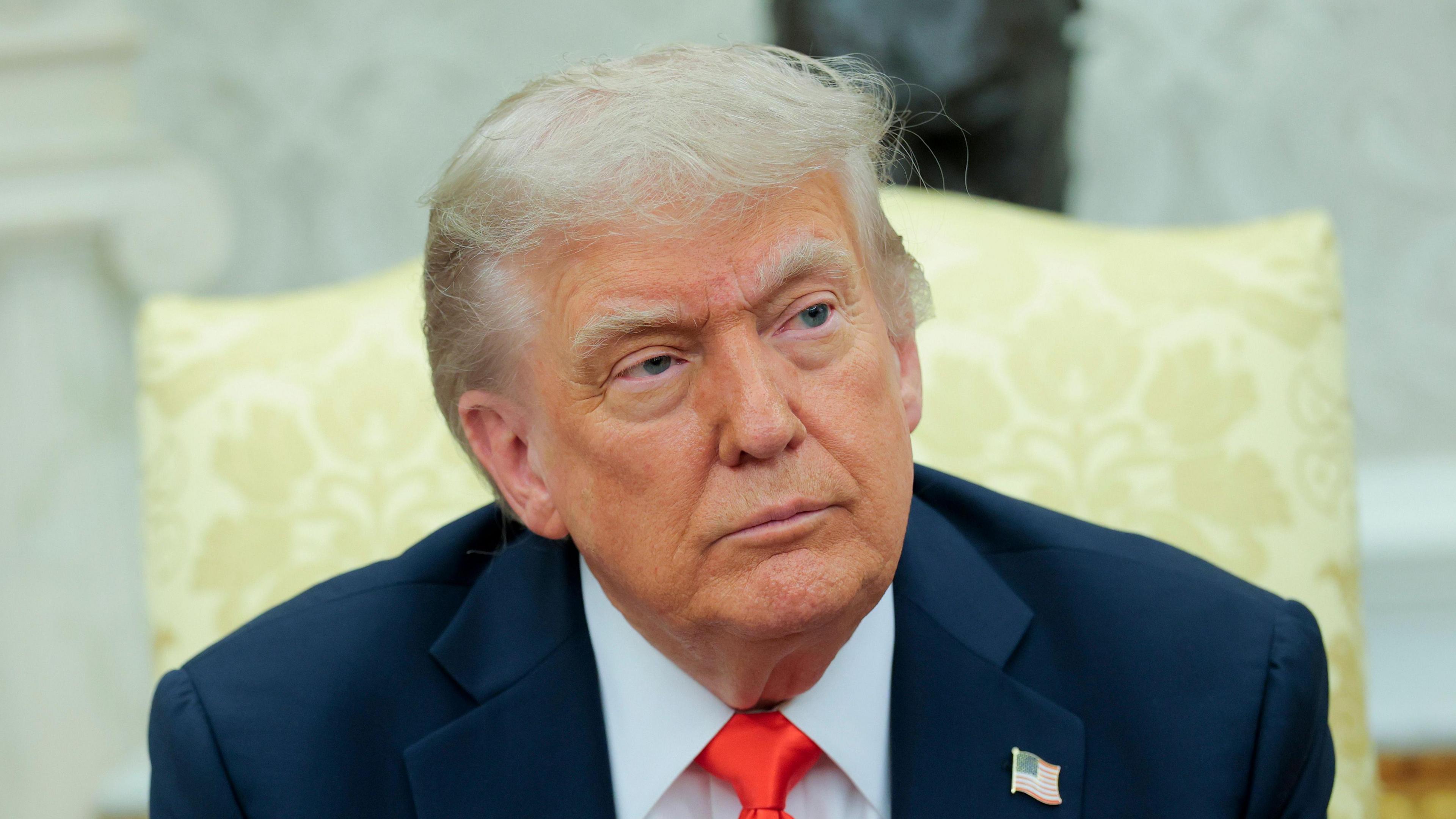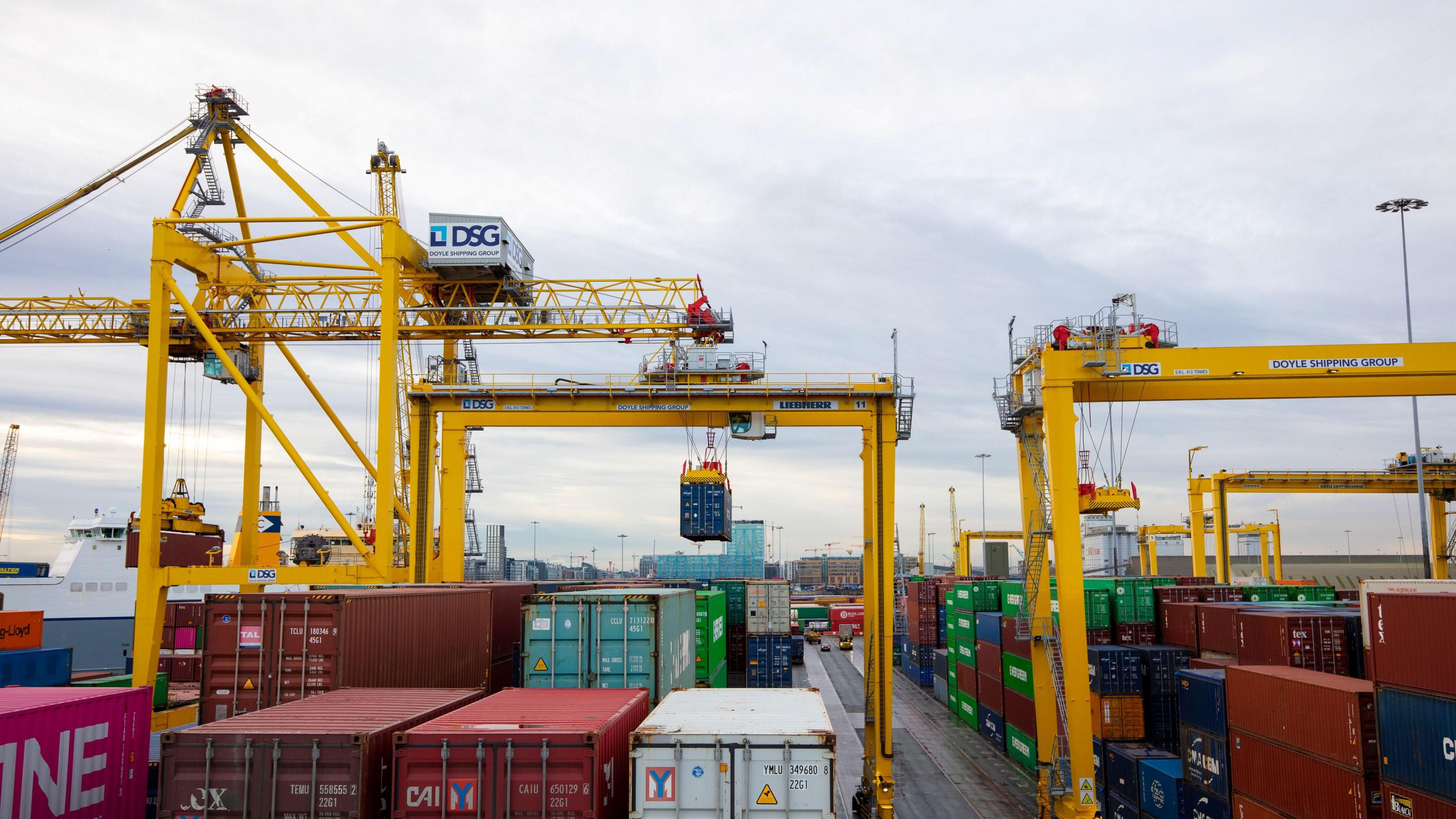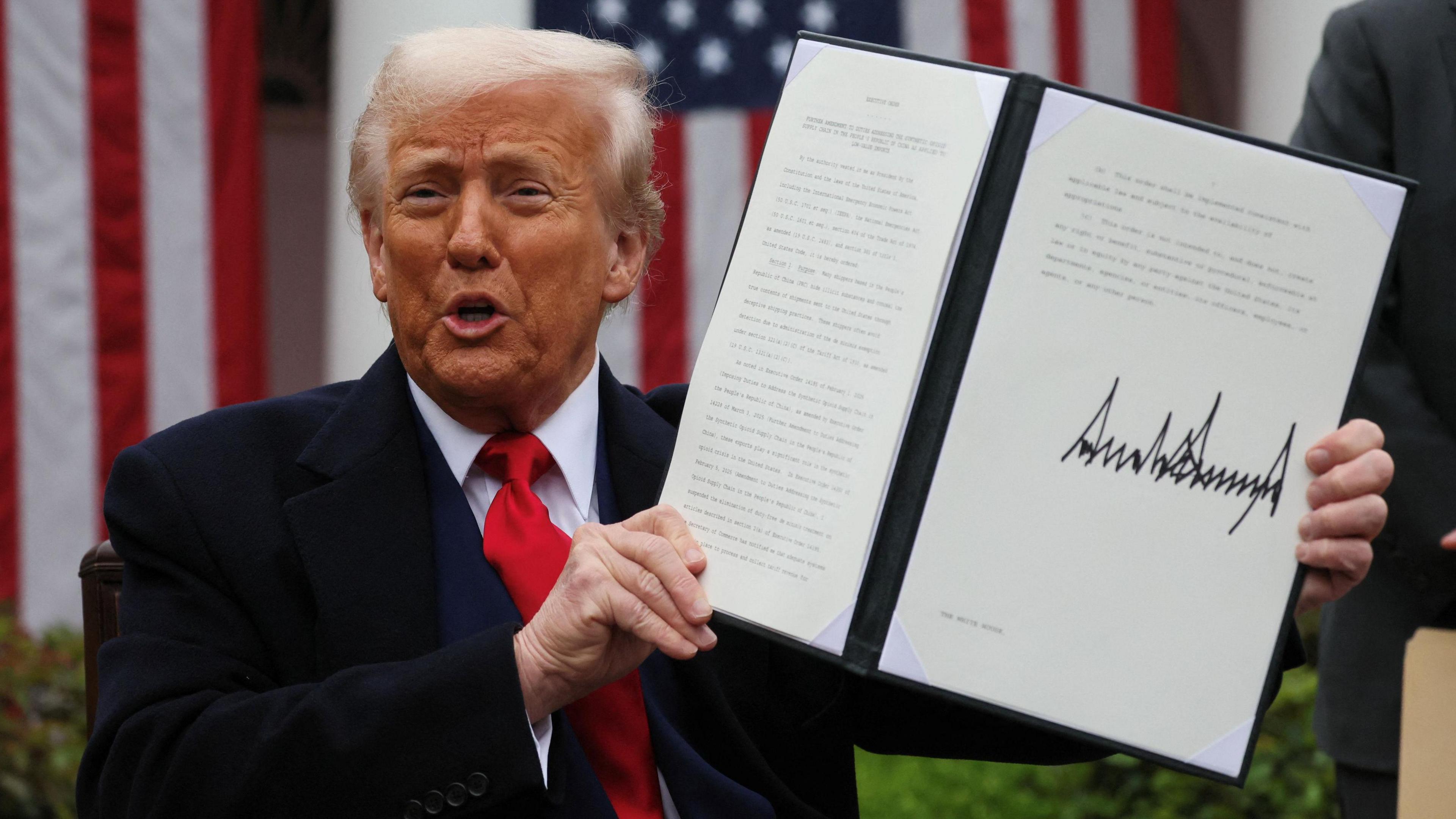Trump's tariffs cause fall in Irish goods exports

In April, Trump imposed a minimum tariff of 10% on almost all countries
- Published
Irish goods exports declined sharply in April as President Trump's tariffs continued to have a significant impact on Ireland's trade.
Businesses had rushed to sell goods to the US in the first three months of the year to avoid the impact of the tariffs which started to take effect in April.
As a result, exports sales were £37bn (£31.5bn) in March, which was a record month, and then in April they declined to £22bn (£19bn).
Exports to the US declined by 62% compared to March, down from almost €26bn (£22bn) to just under €10bn (£8.5bn).
However, overall exports and exports to the US were still higher in April compared to the same month last year.
Tariffs are effectively a tax on imports and are a key of Trump's America First economic policy.
In April, Trump imposed a minimum tariff of 10% on almost all countries, while proposing extra "reciprocal" duties for some trading partners, including 20% on the EU.
He later suspended the reciprocal measures, giving partners 90 days to negotiate.
The US is Ireland's biggest export market and pharmaceuticals are the most important sector.

The dramatic swings in exports are having an impact on Ireland's overall economic data
Trump has not yet imposed tariffs on pharmaceuticals but is threatening to do so on national security grounds.
Until that happens the majority of Irish goods exported to the US do not face tariffs.
The dramatic swings in exports are having an impact on Ireland's overall economic data.
The surge in exports saw the country's GDP grow by almost 10% in the first quarter of this year.
A different measure, MDD, which larger strips out the impact of multinationals showed quarterly growth of just 0.8%.
Related topics
- Published3 April
